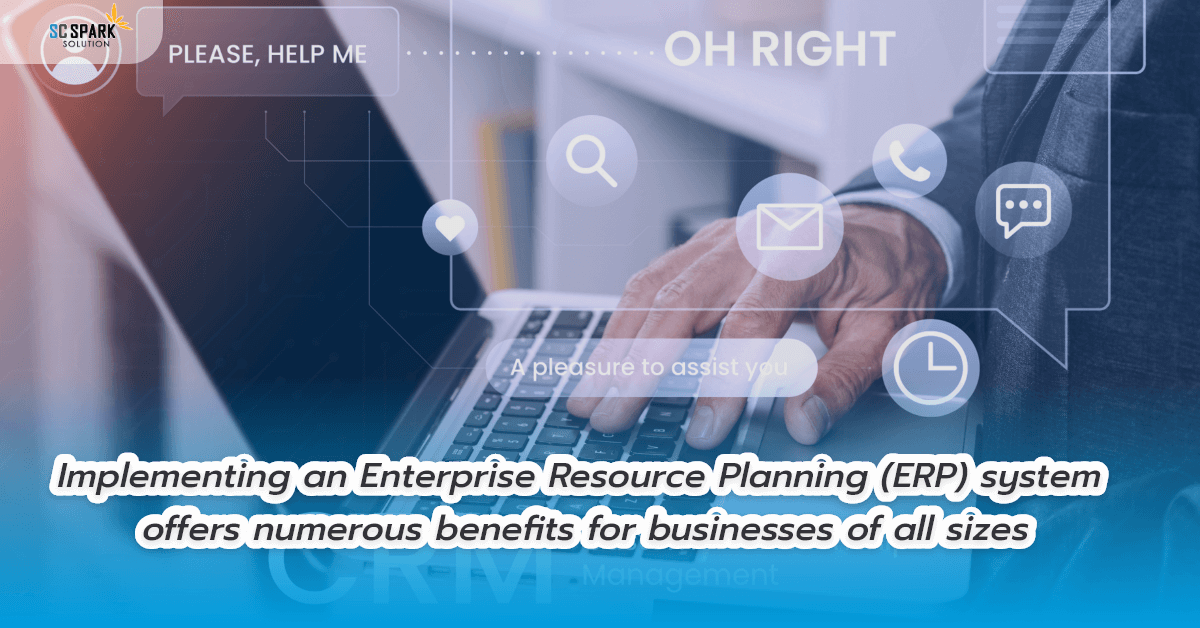Implementing an Enterprise Resource Planning (ERP) system offers numerous benefits for businesses of all sizes
- Improved Efficiency
- Streamlined Processes: ERP systems integrate various business processes, such as accounting, human resources, inventory management, and customer relationship management, into a single system. This integration reduces the need for manual data entry and minimizes errors.
- Automation: Routine tasks can be automated, freeing up employees to focus on more strategic activities.
- Enhanced Data Accuracy and Reporting
- Real-Time Data: ERP systems provide real-time data access, which ensures that businesses have accurate and up-to-date information for decision-making.
- Improved Reporting: With centralized data, businesses can generate comprehensive reports that offer insights into various aspects of the organization, facilitating better strategic planning.
- Scalability
- Growth Management: ERP systems are designed to grow with your business. They can handle an increasing amount of data and users, making it easier to scale operations without disrupting existing processes.
- Adaptability: As businesses evolve, ERP systems can be customized and updated to meet new requirements and challenges.
- Cost Savings
- Operational Efficiency: By streamlining business processes and reducing manual tasks, ERP systems help cut operational costs.
- Inventory Management: Improved inventory management can reduce excess inventory and decrease storage costs.
- Enhanced Collaboration
- Unified Platform: ERP systems provide a unified platform for all business functions, facilitating better communication and collaboration across departments.
- Information Sharing: Employees can easily access and share information, leading to more informed decision-making and improved teamwork.
- Improved Customer Service
- Customer Insights: ERP systems provide a comprehensive view of customer data, helping businesses understand customer needs and preferences better.
- Efficient Order Processing: Streamlined order processing and inventory management ensure that customer orders are fulfilled accurately and on time.
- Regulatory Compliance
- Standardized Processes: ERP systems help standardize processes and ensure compliance with industry regulations and standards.
- Audit Trails: They provide detailed audit trails, which are essential for compliance and reporting purposes.
- Data Security
- Centralized Security Protocols: ERP systems offer centralized security protocols, ensuring that sensitive business data is protected against unauthorized access.
- Backup and Recovery: Regular data backups and recovery plans minimize the risk of data loss.
Conclusion
Implementing an ERP system can significantly enhance the efficiency, scalability, and overall performance of businesses of all sizes. By providing a unified platform for managing various business functions, ERP systems facilitate better decision-making, improve customer service, and drive cost savings. As businesses continue to grow and evolve, ERP systems offer the flexibility and adaptability needed to stay competitive in today’s dynamic market environment.
For those of you who want to make an E-Commerce app, a shopping app or a Delivery app, we recommend SC-Spark Solution, an app making company. experienced With direct experience from Silicon Valley, being a company that develops more than 100 applications around the world, both custom and ready-made for you to choose from. If anyone is interested in making mobile applications or websites, you can contact here
Contact us at
Facebook : SC-Spark Solution บริการทำแอปพลิเคชั่น
“Nothing is impossible”







